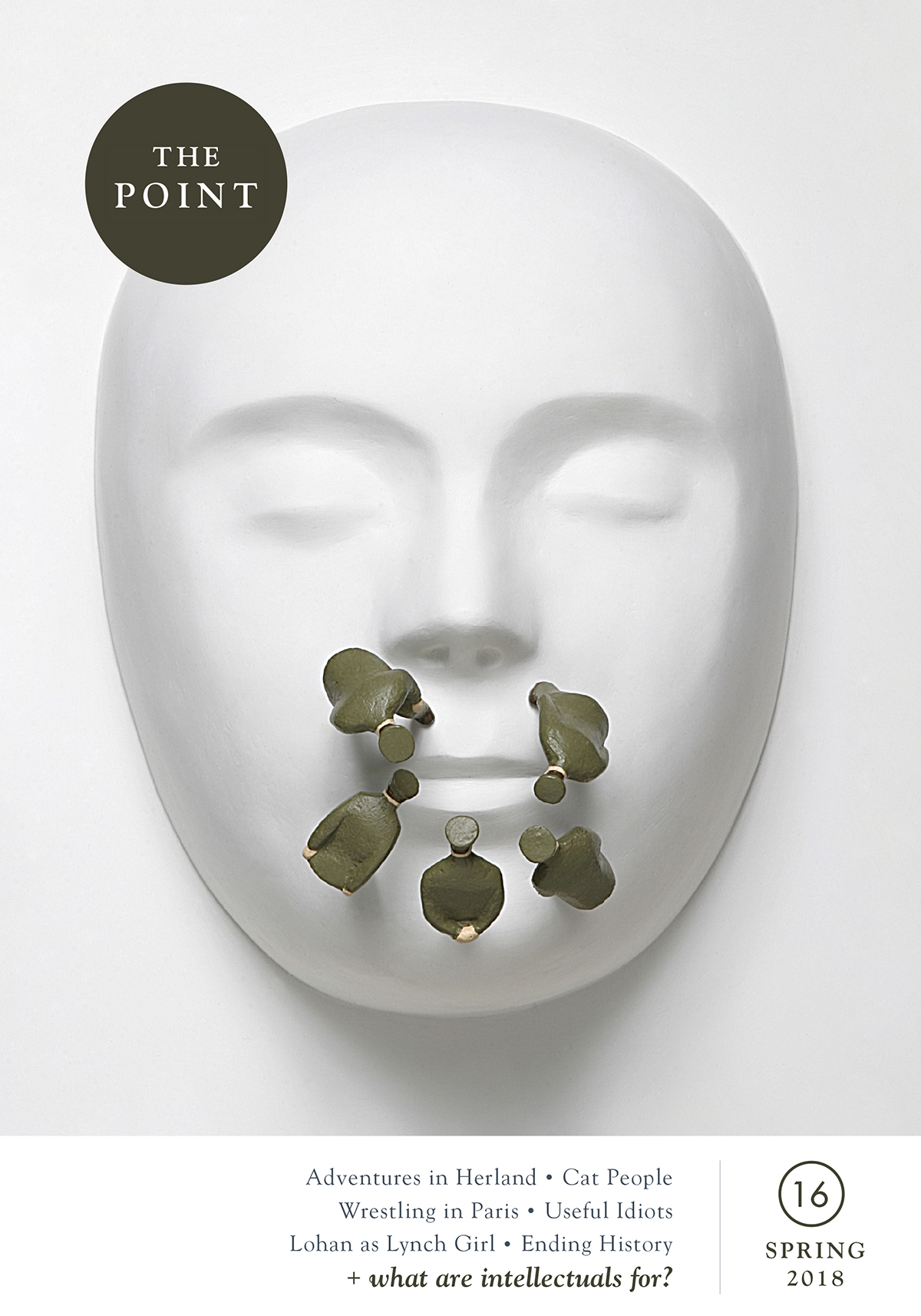The Point 16: What are intellectuals for?
by
multiple authors
(editors)
The Point 16: What are intellectuals for?
by
multiple authors
(editors)
There are no public intellectuals really in the real sense of the word, which implies a kind of intellectual and spiritual integrity that is rare in the public sphere. There are opinion-makers, security experts, hacks, ambitious academics and most of them are compromised by their proximity to political power.
quote from not sure where, 2006
There are no public intellectuals really in the real sense of the word, which implies a kind of intellectual and spiritual integrity that is rare in the public sphere. There are opinion-makers, security experts, hacks, ambitious academics and most of them are compromised by their proximity to political power.
quote from not sure where, 2006
Toussaint was a product of the especially modern conditions of the colonial plantation complex: he had a personal memory of bondage that would not allow for compromise with Napoleon’s attempts to recapture Saint-Domingue, and yet he was also a statesman formed in part by the ideals of the European Enlightenment, and couldn’t envisage his society developing in complete independence from a France that he viewed as “the highest state of civilization.” James did not see this as weakness on Toussaint’s part, or as a willing submission to the stultifying logics of reason and progress. His dilemma was simply borne out of the conditions in which he had to operate. For Scott, Toussaint’s vexed relationship to the Enlightenment is shared in the 21st century by third-world intellectuals, for whom “modernity” is both a blessing and a curse that can neither simply be escaped from nor endorsed.
could be applicable to other situations
Toussaint was a product of the especially modern conditions of the colonial plantation complex: he had a personal memory of bondage that would not allow for compromise with Napoleon’s attempts to recapture Saint-Domingue, and yet he was also a statesman formed in part by the ideals of the European Enlightenment, and couldn’t envisage his society developing in complete independence from a France that he viewed as “the highest state of civilization.” James did not see this as weakness on Toussaint’s part, or as a willing submission to the stultifying logics of reason and progress. His dilemma was simply borne out of the conditions in which he had to operate. For Scott, Toussaint’s vexed relationship to the Enlightenment is shared in the 21st century by third-world intellectuals, for whom “modernity” is both a blessing and a curse that can neither simply be escaped from nor endorsed.
could be applicable to other situations
I do not want to say, of course, that the world has no pattern, no structure, no determinate shape, no determinacy. But I do want to say that its future is not already wrapped up in its past, that it is not part of an unfolding teleological narrative, whose end is known and given in its beginning. I do not believe, in that sense, in “the laws of history.” There is no closure yet written into it. And to be absolutely honest, if you do not agree that there is a degree of openness or contingency in every historical conjuncture, you do not believe in politics, because you do not believe that anything can be done about it.
I do not want to say, of course, that the world has no pattern, no structure, no determinate shape, no determinacy. But I do want to say that its future is not already wrapped up in its past, that it is not part of an unfolding teleological narrative, whose end is known and given in its beginning. I do not believe, in that sense, in “the laws of history.” There is no closure yet written into it. And to be absolutely honest, if you do not agree that there is a degree of openness or contingency in every historical conjuncture, you do not believe in politics, because you do not believe that anything can be done about it.

